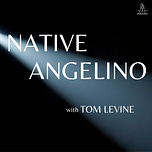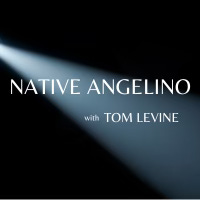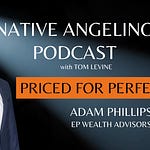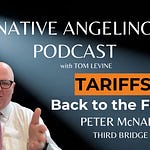The Race Between Technology And Education
A major impetus for my writing and recording is my interest in personal reinvention. The overcoming of adversity. How does one remain relevant in the job market after age - pick one - 40-45-50?
Traditionally, in post-WW2 America, a citizen enters the workforce at 18-25 years of age, with no degree, or with a two-year, four year or graduate degree, and accumulates savings with the anticipation of retirement at age 65.
For roughly seven decades, until the 2000s, this was the “American Dream.”
Then Something Changed
I speak with Professor Linus Yamane on the accompanying podcast about employment history and trends. The Professor is an expert in the Japanese and American history of economics from a macro or economy-wide perspective.
Professor Yamane highlights the 2008 book by Claudia Goldin and Lawrence Katz, The Race Between Education and Technology. He refers to the book as “the most significant work on the topic of the last 50 years.”
An update to the book titled, The Race Between Education and Technology, can be found here.
The professor states that before approximately the year 2000, the path was clear. Get a college degree, and you will do better than your parents did economically and better than your non-college-educated fellow citizens.
Somewhere around this time, the dynamic changed. As measured by income, the battle for success became a push and pull among those with college degrees. Liberal arts degrees have been devalued, and STEM degrees gained enormously in value.
The devaluation led to a further stratification in income levels and further widened the income disparity between the haves and have nots.
For those “older workers” that are seeking work, they may well find that their skill set and degree is no longer, or not as relevant as it was in decades past. Further, the impact of ageism, sexism, and racism may play a coincident role as well.
The Role of Education And Technology
The United States stopped producing engineers and scientists at the rate necessary to keep up with technology and to keep pace with our international competitors.
To paraphrase Professor Yamane, the U.S. is educating STEM students at a rate of 20% of the total versus the new world leaders at 30%.
The logical solution is to encourage students to go into science and technology tracks (STEM) at a very early age.
Further, he believes that resources allocated to early childhood education are the best use of dollars aimed at rectifying the structural under-production of math and science degree graduates.
The race between education and technology is a marathon. Education, re-education, training and re-training are necessary for a nation, our nation, to continue to compete and lead as an economic power.
In future writings and podcasts, I will further explore the topic of employment for older demographics from both a macro and micro standpoint. We will examine the sociological, economic and psychological impact of long-term unemployment and the impact on the individual.
One very good book that takes a global market approach is: The Changing World Order by Ray Dalio. We will discuss this book in an upcoming podcast.
Finally, a quote from Professor Yamane:
Of course, this does not mean that everyone should major in STEM.
First and foremost, money is not everything. If you love what you do, you never have to work a day in your life.
There is much to be said about doing something you find interesting and meaningful while interacting with people you enjoy and respect.
You should try to maximize your happiness, not your income.
They are not the same thing. And research shows that additional income above $100K in California does not increase average levels of happiness.
The Author And Podcast Host, Tom Levine
Following a 25 year career in capital markets, Tom Levine founded Zero Hour Group in 2014.
The Los Angeles, California-based firm provides consulting, strategic analysis, and real estate services.
Services are offered nationwide and across a variety of sectors. The firm's clients range from family offices and high net worth individuals to institutions and professional investors.
Real Estate related transactions are brokered through our subsidary firms, Native Angelino Real Estate and WEHO Realtor.
Tom Levine is a Native Angelino and graduate of USC Marshall School of Business, Claremont Colleges, and spent a term at the London School of Economics. Additionally, he is a certified Short Sale Specialist under the National Association of Realtors.
Podcast
The Native Angelino Podcast is underwritten and produced in conjunction with the Zero Hour Group, a consulting and strategy firm, parent to 1929, Native Angelino Real Estate, and associated real estate assets.
Native Angelino description found on iTunes:
“From a vantage point within sight of the Hollywood Sign, seated beneath a palm tree, Tom Levine takes you on a twisted, exploratory tour of popular thought, the upside-down theories of classical economics, politics, and other strange things.
Tom talks all things Los Angeles, bright new ideas, and complex topics of interest to creative thinkers and discerning skeptics.
L.A. locals state with pride, "You can surf in the morning and ski in the afternoon." Well, if you get a really early start, it's true. Sometimes.
Los Angeles is the City of the Angels, and Tom Levine is a Native Angelino.

















